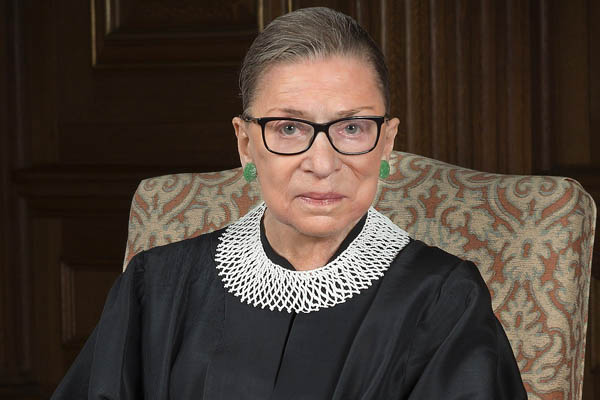Justice Ruth Bader Ginsburg was a voice for the voiceless. Nominated in 1993 by then-President Bill Clinton, Ginsburg became the second female Supreme Court Justice and the first Jewish female Supreme Court Justice in history. For her entire career, Ginsburg was in a male-dominated field yet tirelessly advocated for the equal treatment of women and minorities.
Having graduated top of her class at Cornell University in 1954, Ginsburg had few job prospects simply for her being female. Additionally, she was one of only nine women in a class of 552 at Harvard. Ginsburg understood how it felt to be marginalized.
Ginsburg led a selfless and noble life both on and off the court. She was a sacrificial mother and a loving wife. She was married to the late Martin D. Ginsburg, who, in her own words, was “the only boy I ever met who cared that I had a brain.”
With the trials she faced in a male-dominated field, Ginsburg, throughout her entire career, spoke up for both women and minorities. She was instrumental in situations such as the legalization of same-sex marriage
and the admittance of women into the Virginia Military Institute, as well as many other cases in which both women and minorities became one step closer to fair treatment.
Ginsburg was small in stature but powerful in voice and rhetoric. In an article for CNN, Jamie Ehrlich wrote that in 2013, the late Justice Antonin Scalia said of Ginsburg, “She has done more to shape the law in this field than any other justice on this court. She will take a lawyer who is making a ridiculous argument and just shake him like a dog with a bone.”
After multiple battles with varying types of cancer, Ginsburg passed away on Sept. 18 due to metastatic pancreatic cancer. She was 87 years old and died at her home in Washington, D.C. Her selflessness and rigor for her country were evident until her final breaths.
In an article for NPR, Nina Totenberg reported that in the final days of her life, Ginsburg said to her granddaughter, “My most fervent wish is that I will not be replaced until a new president is installed.”
President Trump has already nominated one new Supreme Court Justice during his term. With Ginsburg having adamantly opposed Trump’s presidency since the beginning, her final wish was that a new president would be the one to nominate her replacement.
Ginsburg passed away at the start of the Jewish New Year, Rosh Hashanah. Being that she was the first Jewish female Supreme Court Justice, many are taking the timing of her death as a sign to usher in a new year — one in which Ginsburg’s legacy lives on and diversity and feminism continue to be celebrated.
Photo courtesy to Library of Congress.




